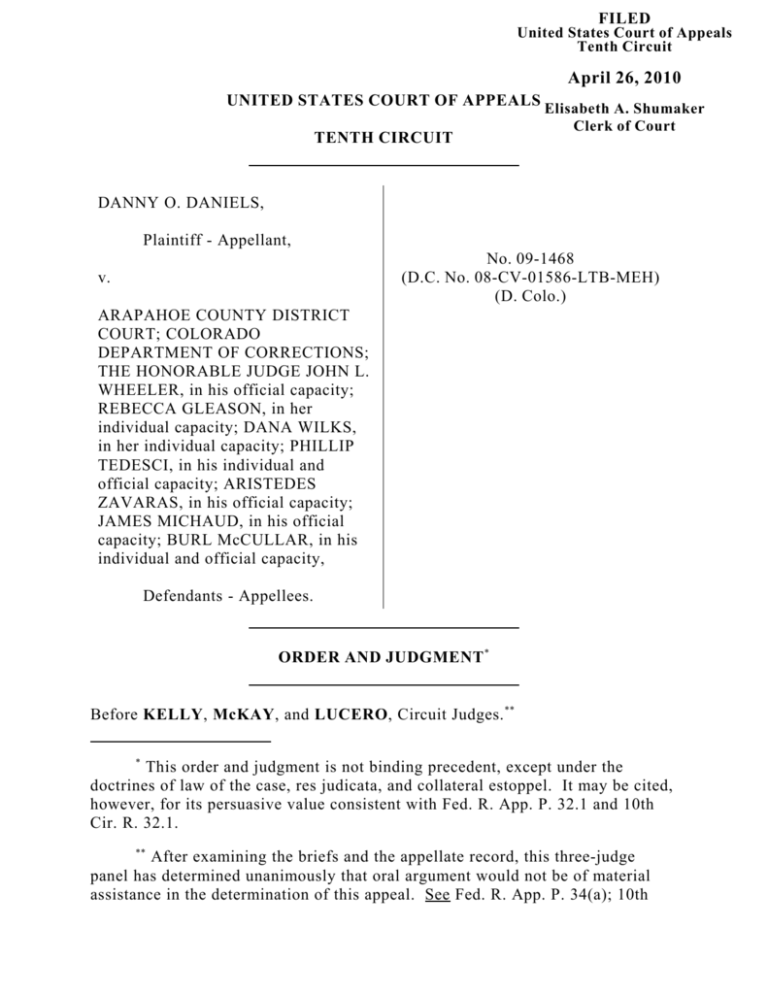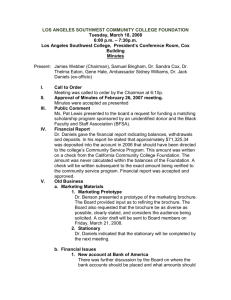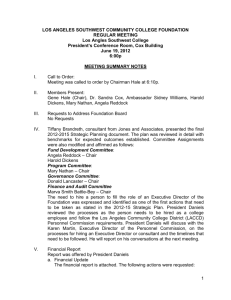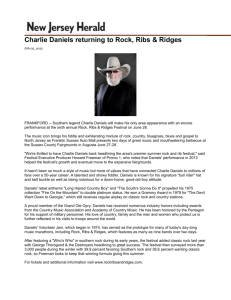
FILED
United States Court of Appeals
Tenth Circuit
April 26, 2010
UNITED STATES COURT OF APPEALS Elisabeth A. Shumaker
TENTH CIRCUIT
Clerk of Court
DANNY O. DANIELS,
Plaintiff - Appellant,
No. 09-1468
(D.C. No. 08-CV-01586-LTB-MEH)
(D. Colo.)
v.
ARAPAHOE COUNTY DISTRICT
COURT; COLORADO
DEPARTMENT OF CORRECTIONS;
THE HONORABLE JUDGE JOHN L.
WHEELER, in his official capacity;
REBECCA GLEASON, in her
individual capacity; DANA WILKS,
in her individual capacity; PHILLIP
TEDESCI, in his individual and
official capacity; ARISTEDES
ZAVARAS, in his official capacity;
JAMES MICHAUD, in his official
capacity; BURL McCULLAR, in his
individual and official capacity,
Defendants - Appellees.
ORDER AND JUDGMENT *
Before KELLY, McKAY, and LUCERO, Circuit Judges. **
*
This order and judgment is not binding precedent, except under the
doctrines of law of the case, res judicata, and collateral estoppel. It may be cited,
however, for its persuasive value consistent with Fed. R. App. P. 32.1 and 10th
Cir. R. 32.1.
**
After examining the briefs and the appellate record, this three-judge
panel has determined unanimously that oral argument would not be of material
assistance in the determination of this appeal. See Fed. R. App. P. 34(a); 10th
Plaintiff-Appellant Danny O. Daniels, a state inmate appearing pro se,
appeals from the district court’s grant of summary judgment in favor of
Defendant-Appellees, various Colorado state officials and governmental bodies,
on claims that the officials unconstitutionally classified him as a sex offender.
Daniels v. Colo. Dep’t of Corr., No. 08-cv-01586-LTB-MEH, 2009 WL 3246198,
at * 1 (Oct. 6, 2009). Mr. Daniels brought this civil rights action pursuant to 42
U.S.C. § 1983; we have jurisdiction under 28 U.S.C. § 1291 and affirm.
Background
We set forth the following facts found by the magistrate judge after an
evidentiary hearing. See id.
Mr. Daniels is serving a sentence in Colorado for first degree assault, for
menacing, and for reckless endangerment. Id. In 1991, he pled guilty to a
California state indictment charging two offenses, including unlawful sexual
intercourse with a minor (statutory rape). Id. at *2. Colorado prison officials
therefore classified him as a sex offender. Id. at *3. This classification, by itself,
will not require him to register as a sex offender, at least in Colorado, upon his
release. Id.
Cir. R. 34.1(G). The cause is therefore ordered submitted without oral argument.
-2-
In 2008, Mr. Daniels pro se filed this prisoner civil rights action under 42
U.S.C. § 1983, arguing that the officials violated his constitutional rights when
they classified him as a sex offender. Id. Although he raised many claims, Mr.
Daniels primarily asserted that his 1991 plea agreement prohibited classifying
him as a sex offender. Id. None of the Defendant-Appellees were parties to, or
were involved with, the 1991 plea. Id. at *2.
The magistrate judge’s report and recommendation found that the
Defendants merited qualified immunity because they did not violate Mr. Daniels’s
constitutional or statutory rights. Id. at *6. The judge recommended granting
summary judgment in favor of the Defendants and dismissing any remaining
claims. Id. at *1. After a hearing, he also recommended denying Mr. Daniels’s
motion for a temporary restraining order and his request for a preliminary
injunction. Id. The district court adopted the report and recommendation in full.
Id.
On appeal, Mr. Daniels challenges the district court’s grant of summary
judgment. He does not appeal the district court’s refusal to issue either a
temporary restraining order or a preliminary injunction.
Discussion
We consider each of Mr. Daniels’s claims in turn. We review the grant of
summary judgment de novo, applying the same standard as the district court under
-3-
Rule 56(c)(2) of the Federal Rules of Civil Procedure. See D.L. v. Unified Sch.
Dist. No. 497, 596 F.3d 768, 772 (10th Cir. 2010). Summary judgment is
appropriate “if the pleadings, the discovery and disclosure materials on file, and
any affidavits show that there is no genuine issue as to any material fact and the
movant is entitled to a judgment as a matter of law.” Fed. R. Civ. P. 56(c)(2).
We interpret plea agreements de novo under general principles of contract law.
United States v. Brunner, 134 F.3d 1000, 1003 (10th Cir. 1998).
First, we agree with the district court that no evidence shows that the
Defendants violated Mr. Daniels’s due process rights by breaching the plea
agreement. Daniels, 2009 WL 3246198, at *6-7. None of the defendants were
parties to the agreement. Id. at *2. Contrary to Mr. Daniels’s assertion, Aplt. Br.
at 13, the states of California and Colorado are different sovereign governments,
and they do not bind each other by their contracts. See Heath v. Alabama, 474
U.S. 82, 88-89 (1985). Therefore none of these Defendants were bound to the
California plea agreement, nor could they be bound under a theory of promissory
estoppel. Daniels, 2009 WL 3246198, at *7 (citing Nelson v. Elway, 908 P.2d
102, 110 (Colo. 1995)). Neither could the contract somehow show that Colorado
lacks jurisdiction over Mr. Daniels.
Nor does the Full Faith and Credit Clause, U.S. Const. art iv, § 1, require
individuals to be bound to the plea agreement. Daniels, 2009 WL 3246198, at *7.
In-prison sex offender classification proceedings are not judicial civil actions.
-4-
The Full Faith and Credit “clause has nothing to do with the conduct of
individuals . . . and to invoke the rule which it prescribes does not make a case
arising under the Constitution or laws of the United States.” Minnesota v. N. Sec.
Co., 194 U.S. 48, 72 (1904). Nor does that clause apply to parties not in privity
with persons governed by the original judgment. Baker v. Gen. Motors, 522 U.S.
222, 233 & n.5 (1998).
Next, Mr. Daniels claims that using the plea agreement as a basis for his
sex offender status violates the rules of res judicata. Aplt. Br. at 9, 36. That
doctrine also only applies when the parties are identical or in privity in both
cases. Nwosun v. Gen. Mills Restaurants, Inc., 124 F.3d 1255, 1257 (10th Cir.
1997). Among other reasons, therefore, this doctrine does not apply to Mr.
Daniels’s plea agreement because none of these defendants were involved in the
original plea agreement or conviction.
Nor does the sex offender treatment program impair or tortiously interfere
with the plea agreement. Mr. Daniels argues that a nolo contendere plea cannot
be the basis for his sex offender status. Aplt. Br. at 27. He argues that California
received a nolo contendere plea from him in exchange for promises that he would
not be classified as a sex offender and that the conviction would not negatively
affect him in the future. Aplt. Br. at 12-13. He asserts that classifying him now
as a sex offender and requiring him to enter treatment interferes with and impairs
his prior plea agreement. Aplt. Br. at 16-17, 19, 21. His plea agreement’s
-5-
language, however, included no such promise. Daniels, 2009 WL 3246198, at *2.
His plea was of guilty and his agreement warned that the nature of his offense
could be a sentencing factor. Id. at *2, 7. Moreover, the authority he cites,
People v. West, 477 P.2d 409, 411 (Cal. 1970), only states that the legal effect of
a nolo contendere plea “‘shall be the same as that of a plea of guilty, but the plea
may not be used against the defendant as an admission in any civil suit based
upon or growing out of the act upon which the criminal prosecution is based.’”
Id. (quoting Cal. Penal Code § 1016). Because Mr. Daniels’s status as a sex
offender is an internal prison classification decision, it is not part of any civil
suit. In no way, then, does reliance on the plea tortiously or otherwise interfere
with the plea agreement.
Next, we agree that Mr. Daniels did not have a due process right to a
hearing before the officials classified him as a sex offender. Daniels, 2009 WL
3246198, at *8-9. The Fourteenth Amendment provides that citizens may not be
deprived of life, liberty, or property without due process of law. U.S. Const.
amend. xiv. “A plaintiff asserting that the government has violated the Due
Process Clause by impugning his or her good name, reputation, honor, or
integrity, must demonstrate that: (1) the government made a statement about him
or her that is sufficiently derogatory to injure his or her reputation, that is capable
of being proved false, and that he or she asserts is false, and (2) the plaintiff
experienced some governmentally imposed burden that significantly altered [his
-6-
or] her status as a matter of state law.” Gwin v. Awmiller, 354 F.3d 1211, 1216
(10th Cir. 2004) (emphasis added) (citations and internal quotation marks
omitted). Here, because California convicted Mr. Daniels of a felony sex offense
— an offense to which he admitted guilt — he has no due process right to a
hearing to contest the sexual basis of his classification. He was convicted of
statutory rape. That he is a sex offender is not capable of being proven false.
Nor does a loss of earned time credits or contact visits violate his due
process rights. Lusero v. Welt, 223 F. App’x 780, 784-85 (10th Cir. 2007) (citing
Twyman v. Crisp, 584 F.2d 352, 356 (10th Cir. 1978)); Wirsching v. Colorado,
360 F.3d 1191, 1198-1201 (10th Cir. 2004). Neither does Mr. Daniels have a
right to mandatory parole at stake, because his conviction occurred after Colorado
abolished mandatory parole. Lusero, 223 F. App’x at 784-85 (discussing dates).
Similarly meritless is Mr. Daniels’s argument that his sex offender
classification violates the Double Jeopardy Clause. Aplt. Br. at 24-26. Prison
proceedings are not part of a criminal prosecution and therefore have no double
jeopardy implications. Wirsching, 360 F.3d at 1205 (Colorado’s treatment
program and other disciplinary sanctions do not raise double jeopardy concerns).
Mr. Daniels also argues that his in-prison sex offender classification
violates the Ex Post Facto Clause. Aplt. Br. at 16-21. Not so. This classification
does not require him to register as an offender upon his release from prison.
Daniels, 2009 WL 3246198, at *3. Requiring him to participate in the treatment
-7-
program, upon pain of losing certain prison privileges, like good time credits,
does not increase his punishment. Chambers, 205 F.3d at 1241-42.
Next, Mr. Daniels contends that the officials violated his Fifth Amendment
right against self-incrimination by punishing him for refusing to comply with a
requirement of the sex offender treatment program — that he admit to any and all
of his sex offenses. Aplt Br. at 21-24. He contends that because he refused to
participate in the treatment program, he was ineligible to have family visits and to
earn good time credits at the higher rate available to participating prisoners. Id.
The denial of these benefits, he maintains, constituted impermissible compulsion
of incriminating testimony. Id.
We find a Fifth Amendment violation when the consequences of an
inmate’s refusal to incriminate himself during a sex offender program are “‘so
great as to constitute compulsion.’” Gwinn, 354 F.3d at 1225-27 (citation
omitted). We have held that the loss of Colorado’s discretionary good time
credits are insufficient, id. at 1226, as are the loss of family visits, Wirsching, 360
F.3d at 1204. Nor does Mr. Daniels’s speculation that the state may someday
require him to register as a sex offender amount to compulsion. And, contrary to
Mr. Daniels’s assertion, under this inquiry it is irrelevant that he may have filed a
nolo contendere plea; the collateral consequences are the same as those of a guilty
plea for this analysis. Wirsching, 360 F.3d at 1204-05.
Next, Mr. Daniels claims that the prison officials violated the Fourth
-8-
Amendment and the Federal Rules of Evidence when they put materials from his
California case into his prison file and when a court ordered him to undergo a
psychological evaluation. Aplt Br. at 26-33. First, Mr. Daniels lacks any
“reasonable expectation of privacy” in public records and court documents.
Rodgers v. Hyatt, 697 F.2d 899, 903 (10th Cir. 1983). Second, the Federal Rules
of Evidence have no application in a prison’s sex offender classification decision,
because it is not a federal “civil proceeding.” Fed. R. Evid. 410. Third, we find
no clear error in the district court’s factual finding that the officials based his
classification on his conviction and not on the psychological materials.
Next, Mr. Daniels argues that the district court erred by dismissing all
claims against Defendant-Appellee Phillip Tedesci, without discussing his claim
of “slander/libel” in the order. Aplt Br. at 36-38. The magistrate’s report and
recommendation admittedly did not discuss this claim. 1 R. at 474-500. Mr.
Daniels, however, failed to object to the omission at the time. 1 R. at 509-47.
Therefore, he waived his right to contest that issue.
Last, Mr. Daniels argues that district court overlooked that Mr. Tedesci
failed to deny certain allegations and therefore conceded liability on some claims.
Aplt Br. at 38-39. The court had before it Mr. Tedesci’s filings, in which he
disputed liability for any wrongdoing. 1 R. at 466-67. The court then correctly
found Mr. Tedesci not liable.
AFFIRMED. We DENY leave to proceed IFP; the balance of the filing fee
-9-
is due immediately.
Entered for the Court
Paul J. Kelly, Jr.
Circuit Judge
- 10 -








